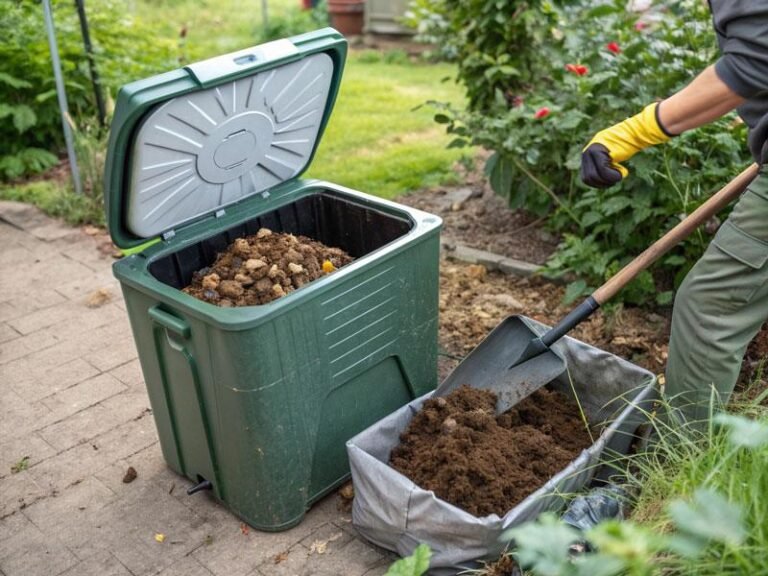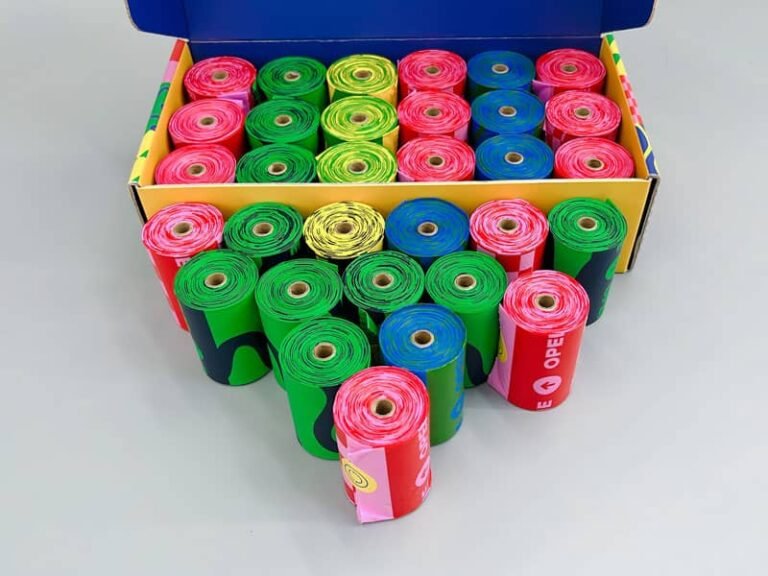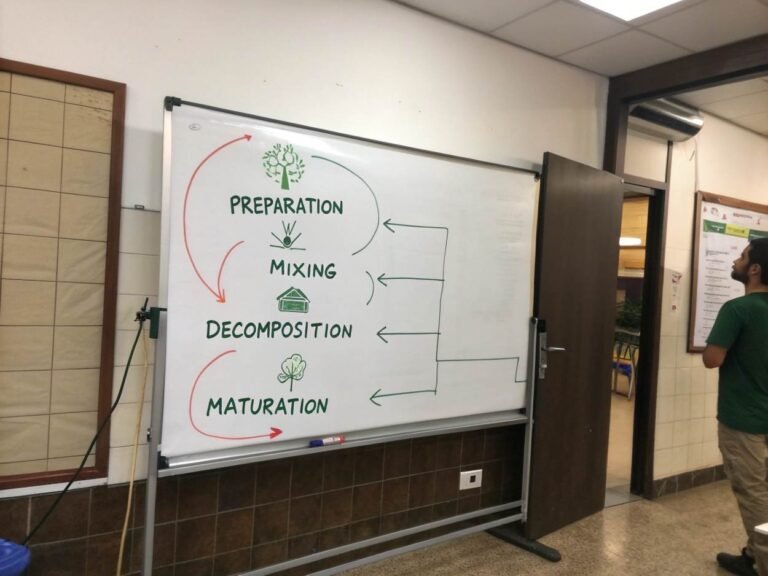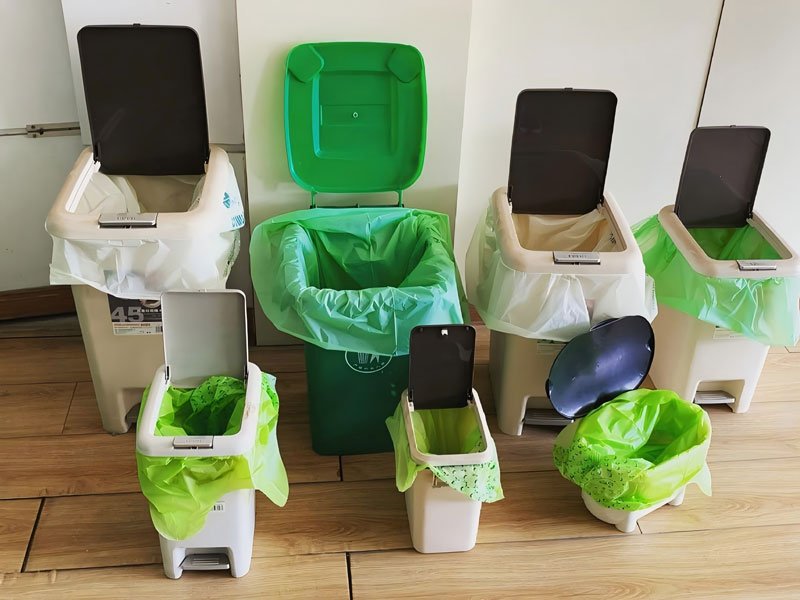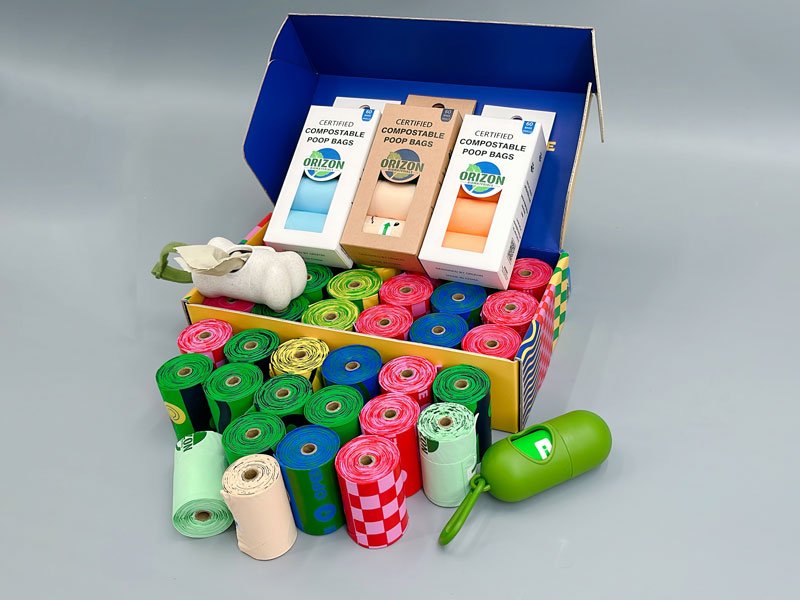Owning a dog brings endless joy—those wagging tails and playful barks make every day brighter. But with the fun comes responsibility, like cleaning up after your furry friend. Whether you’re a new pet parent or a seasoned dog owner, choosing the right dog feces bags can make this daily task easier, cleaner, and even kinder to the planet. With so many options out there, how do you pick the best dog feces bags for your needs? Are biodegradable bags worth the hype? And what’s the deal with compostable ones?
In this guide, we’ll break down everything you need to know about dog poop bags in 2025. From materials and practical tips to eco-friendly trends, we’ve got you covered. Let’s dive in and find the perfect pet waste bags for you and your pup!

What Are Dog Feces Bags?
Dog poop bags, also called pet waste bags or dog feces bags, are small, durable sacks designed to pick up and dispose of your dog’s waste. They’re a must-have for keeping parks, sidewalks, and your backyard clean. Unlike regular plastic bags, dog poop bags are thicker, leak-proof, and often come with features like tie handles or pleasant scents to make the job less unpleasant.
Why not just use a grocery bag? Regular bags are often flimsy, prone to tearing, and not designed for sealing in odors. Plus, many aren’t eco-friendly, sitting in landfills for centuries. Dedicated dog poop bags are built for convenience and hygiene, with options that align with your values—whether that’s saving money or saving the planet.
Dog Feces Bags Materials: What’s the Difference?
The material of a dog poop bag affects its durability, cost, and environmental impact. Let’s explore the main types to help you decide which fits your lifestyle.
Standard Plastic Bags
- Pros: These are the cheapest option, widely available, and come in bulk packs. They’re sturdy enough for most dogs and often include fun colors or scents.
- Cons: Plastic bags are an environmental nightmare. They can take 100-500 years to decompose, clogging landfills and harming wildlife.
- Best for: Budget-conscious owners who prioritize affordability over sustainability.
Biodegradable Dog Poop Bags
- Pros: Made from plant-based materials or additives, these bags break down faster than plastic—sometimes in months under the right conditions. They’re a step toward greener pet care.
- Cons: “Biodegradable” doesn’t always mean eco-friendly. Some need industrial facilities to decompose, and they’re pricier than plastic.
- Best for: Pet owners wanting a balance of convenience and eco-consciousness.

Compostable Pet Waste Bags
- Pros: The gold standard for eco-friendly bags, compostable options (like those made from corn starch) fully break down into organic matter in home or industrial compost systems. They’re certified by standards like BPI or OK Compost.
- Cons: Higher cost and less availability. You’ll need a composting setup to maximize their benefits.
- Best for: Dedicated environmentalists with access to composting.
Innovative Materials
Some brands are pushing boundaries with bags made from bamboo, hemp, or recycled materials. These are less common but gaining traction for their low environmental footprint. Keep an eye out for them in 2025 as sustainable pet care grows.
Quick Comparison
| Material | Eco-Friendliness | Price | Durability |
|---|---|---|---|
| Standard Plastic | Low | $ | High |
| Biodegradable | Medium | $$ | Medium |
| Compostable | High | $$$ | Medium |
| Innovative (e.g., Bamboo) | High | $$$ | Varies |
Choosing the right material depends on your priorities—budget, durability, or planet-friendly vibes. Let’s move on to picking the perfect bag for your dog.
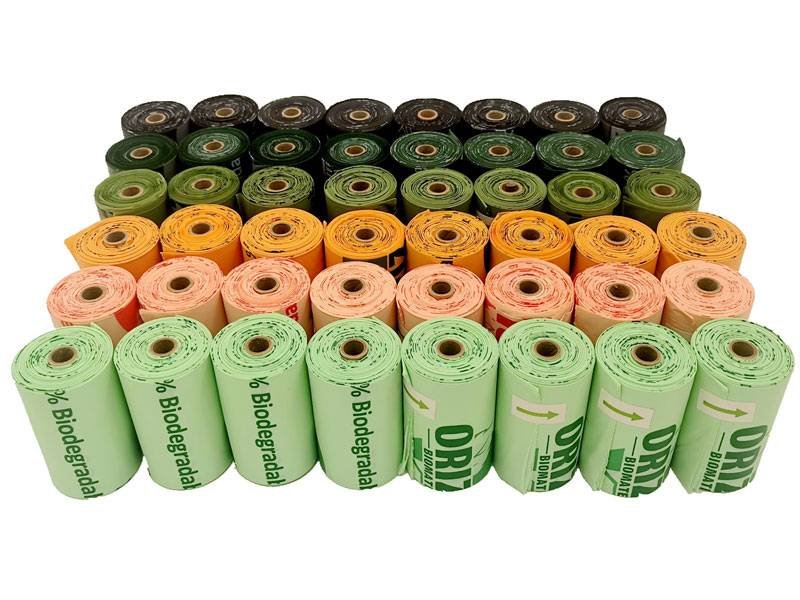
How to Choose the Best Dog Feces Bags
With countless options, finding the right dog poop bags can feel overwhelming. Here are key factors to consider, tailored to your dog and lifestyle.
Match the Bag to Your Dog’s Size
- Small Dogs (e.g., Chihuahuas, Pomeranians): Standard or thinner bags work fine since waste is smaller. Look for rolls that fit dispensers for easy carrying.
- Large Dogs (e.g., Labradors, German Shepherds): Go for thicker, larger bags to handle bigger messes without tearing. Bags labeled “extra-large” or “heavy-duty” are ideal.
Consider Your Routine
- Daily Walks: Compact roll bags are a lifesaver, clipping onto leashes or slipping into pockets. Look for packs with 15-20 bags per roll for convenience.
- Travel or Hiking: Choose durable bags with strong seals to prevent leaks in your backpack. Tie-handle bags make knotting easier on the go.
- Home Use: If you’re cleaning up a yard, larger flat bags (sold in boxes) might save money over rolls.
Prioritize Eco-Friendliness
Want to go green? Check for certifications like BPI or OK Compost to ensure bags are truly biodegradable or compostable. Avoid vague claims like “eco-friendly” without proof. If composting isn’t an option, biodegradable bags are a solid middle ground.
Look for Extra Features
- Scented Bags: Mask odors with lavender, citrus, or unscented options for sensitive noses.
- Tie Handles: Make sealing and carrying a breeze, especially for longer walks.
- Dispenser Compatibility: Ensure bags fit your leash clip or dispenser for seamless use.
- Leak-Proof Design: Essential for peace of mind, especially with messier cleanups.
Balance Budget and Quality
Plastic bags can cost as little as $0.02 per bag, while compostable ones might run $0.10 or more. Buying in bulk (e.g., 500+ bags) often lowers the price. Ask yourself: Is saving a few bucks worth the environmental cost, or does a pricier eco-bag align with your values?
For more tips on eco-friendly pet care, .

Eco-Friendly Trends in Dog Poop Bags for 2025
The pet industry is getting greener, and dog poop bags are no exception. Here’s what’s hot in 2025:
- Zero-Waste Goals: Brands like Earth Rated and Pogi’s are using recycled packaging and carbon-neutral shipping to cut their footprint.
- Plant-Based Innovation: Corn starch and sugarcane bags are replacing petroleum-based plastics, with better decomposition rates.
- Consumer Awareness: More dog owners are choosing compostable bags, driven by social media campaigns and eco-conscious influencers.
- Retail Shifts: Major stores like Chewy and Petco are stocking sustainable options, making them easier to find.
Want to join the trend? Here’s how to dispose of bags responsibly:
- Compostable Bags: Place in a home compost bin or municipal facility (check local rules).
- Biodegradable Bags: Toss in regular trash, but know they’ll break down faster than plastic.
- Plastic Bags: Recycle if clean (rare for poop bags) or dispose of in landfill-bound trash.
By choosing greener bags, you’re helping reduce the 10 million tons of plastic waste entering oceans yearly. Small steps, big impact!
Conclusion: Pick the Perfect Poop Bag for Your Pup
Choosing the right dog poop bags doesn’t have to be a chore. Whether you’re after budget-friendly plastic, sturdy biodegradable options, or top-tier compostable bags, there’s a solution for every dog owner. Consider your dog’s size, your daily routine, and your environmental goals to make a choice that’s practical and planet-friendly.
In 2025, it’s easier than ever to clean up after your pup while keeping sustainability in mind. Ready to upgrade your poop bag game? and make every walk a little greener. Have a favorite bag or tip to share? Drop it in the comments below—we’d love to hear from you!
FAQ
Can dog poop bags be flushed down the toilet?
No, most dog poop bags (even biodegradable ones) aren’t flushable. They can clog pipes and harm water treatment systems. Always check the packaging for specific instructions.
How long do biodegradable dog poop bags take to decompose?
It varies—some break down in 3-6 months under ideal conditions (like industrial composting), while others need years. Compostable bags are faster, often fully degrading in 90 days.
Are dog poop bags recyclable?
Standard plastic bags usually aren’t recyclable once used, due to contamination. Some clean, unused bags can go in plastic recycling—check local guidelines.
How do I store dog poop bags?
Keep them in a cool, dry place to prevent degradation. Rolls can stay in dispensers, but avoid direct sunlight for biodegradable or compostable bags.
Where can I find affordable dog poop bags?
Online retailers like Amazon, Chewy, or direct-from-brand sites offer bulk deals. to save without sacrificing quality.
